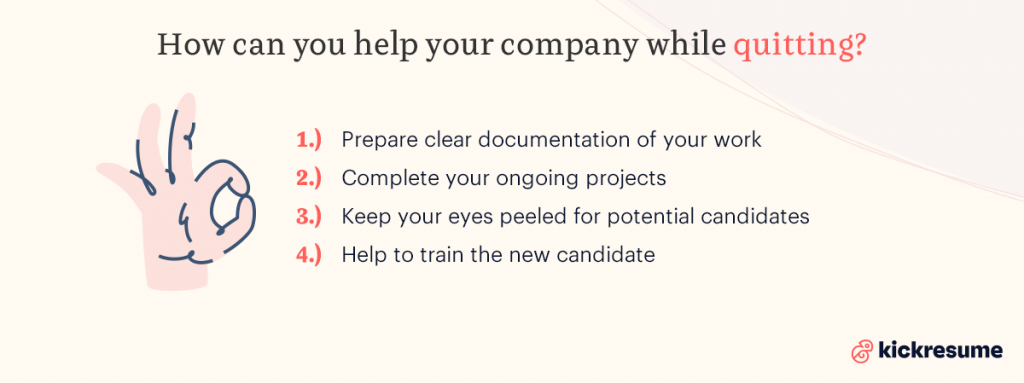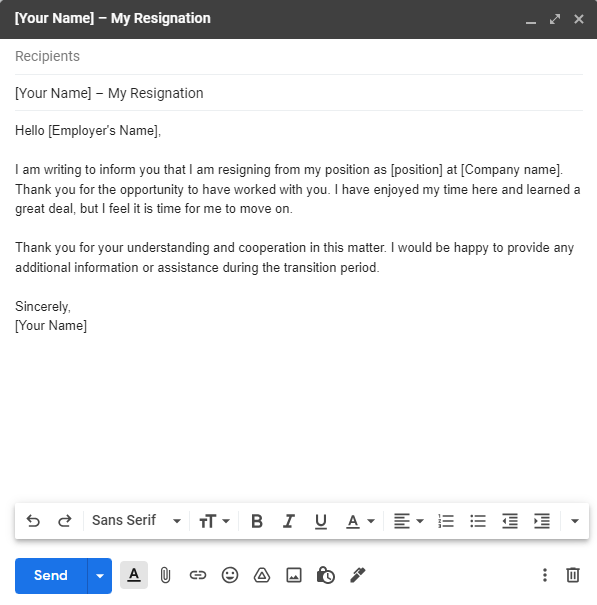How To Tell Your Manager That You Are Quitting

Leaving a job is a significant career milestone, and handling the resignation process professionally is crucial for maintaining positive relationships and ensuring a smooth transition. While the specific circumstances surrounding a departure can vary greatly, understanding the generally accepted best practices for informing your manager is universally applicable.
The manner in which you communicate your resignation impacts not only your professional reputation but also the overall morale of your team and the continued success of the organization you are leaving. This article outlines key considerations for crafting and delivering your resignation notice to your manager, focusing on maintaining professionalism, respect, and clarity throughout the process.
Key Considerations Before You Speak
Before scheduling a meeting with your manager, take time to clarify your intentions and gather necessary documentation. Ensure you have a firm offer from your new employer, including a start date.
Draft a formal resignation letter outlining your last day of employment. This letter serves as an official record and protects you from future misunderstandings.
Consider your company’s policies regarding resignation notice periods. The standard is often two weeks, but some organizations may require more, especially for senior roles.
Scheduling the Conversation
Request a private, in-person meeting with your manager. Avoid delivering the news via email or phone, unless absolutely necessary due to extenuating circumstances.
Choosing the right time is important. Schedule the meeting at a time that allows for a thoughtful discussion without interruption.
Avoid scheduling it right before a major deadline or during a particularly stressful period for your team.
Delivering the News
Begin the conversation by thanking your manager for their support and guidance during your time at the company. Expressing gratitude sets a positive tone and shows respect for the relationship you have built.
Clearly and concisely state your intention to resign. Avoid rambling or offering unnecessary details.
Provide your manager with your formal resignation letter during this meeting. This provides a tangible record of your departure and its effective date.
During the Conversation
Be prepared to answer questions about your decision. While you are not obligated to disclose specific details about your new role, be polite and professional in your responses.
Refrain from speaking negatively about the company, your colleagues, or your manager. Focus on your personal growth and the opportunities that led to your decision.
Offer your assistance in ensuring a smooth transition. This may include documenting your work, training your replacement, or completing outstanding projects.
After the Conversation
Follow up with your manager via email to reiterate your resignation and offer your assistance during the transition period. This reinforces your commitment to a professional departure.
Complete any tasks assigned to you to facilitate the handover process. This demonstrates your dedication to your team and the organization, even as you prepare to leave.
Maintain a positive attitude throughout your remaining time at the company. Your final impression is just as important as your first.
Potential Impact and Ethical Considerations
The manner of your resignation can significantly impact team morale. A graceful exit helps maintain a positive work environment, even during a period of change.
Your professionalism during this period reflects positively on your personal brand and could influence future career opportunities. Burning bridges can have long-term consequences.
Upholding ethical standards by respecting company policies and honoring confidentiality agreements protects both you and your former employer. This is crucial for preserving trust and integrity.
By following these guidelines, individuals can navigate the often-sensitive process of resigning from a job with professionalism, respect, and a focus on maintaining positive relationships. This ultimately benefits both the departing employee and the organization they are leaving behind.




:max_bytes(150000):strip_icc()/how-to-tell-your-boss-you-re-quitting-your-job-2063035_FINAL-5b88037cc9e77c002cc6f46c.png)










:max_bytes(150000):strip_icc()/2060865a-a00dd037c25547df8a83c13bb57cd695.jpg)


